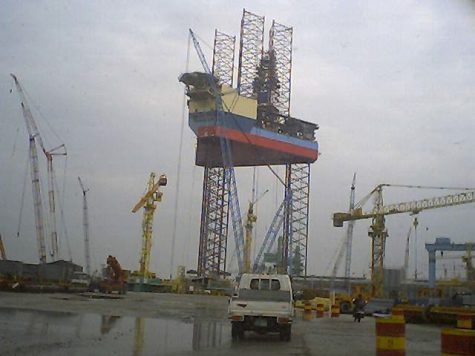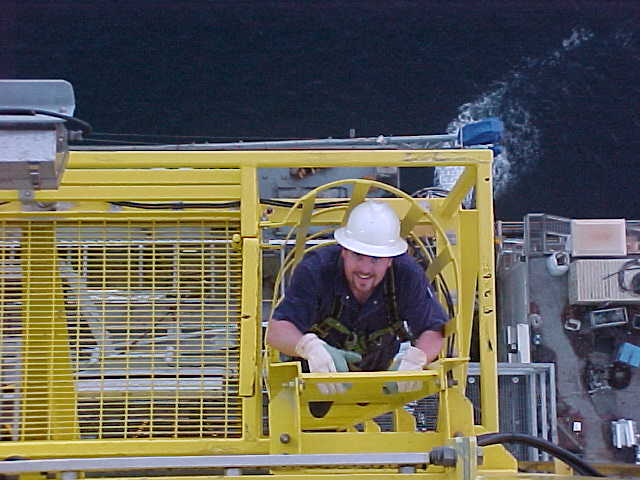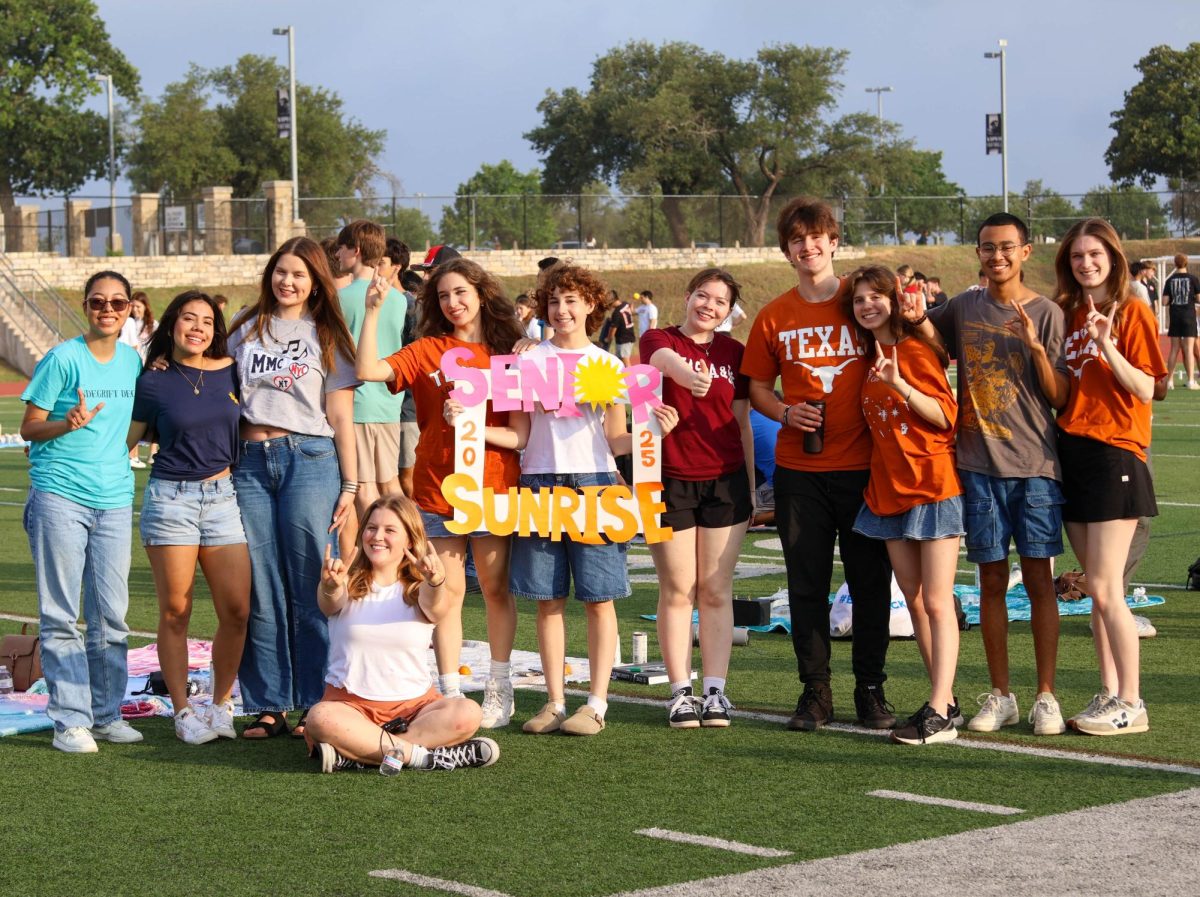Rigs to Roots
New long term Algebra substitute reminisces on a career of international experiences
Houchins on Discoverer Enterprise 240 feet up.
April 18, 2022
The Deepwater Horizon oil spill disaster of 2010 in the Gulf of Mexico will be remembered for decades, especially by the Algebra II substitute teacher who designed the control system for its drill a decade prior.
“While I was out making the tool work, they decided two others would get the patent on the original concept of the design,” He said. “And they excluded me, which was for the best because they both got laid off after.”

Long term substitute teacher Thomas Houchins worked for 27 years in the oil industry, placed on rigs all around the world. After he started a family, however, he looked into a more stable career in education. Now, he teaches Algebra II among other lessons he learned abroad.
“I didn’t really have any instruction before I started here as a sub a few weeks ago,” long term substitute teacher Thomas Houchins said. “But in some ways, I’ve been teaching my whole life.”
Houchins’s job included designing large cranes for oil rigs around the world. These million dollar projects were very precise in their creation, and called for Houchins to travel all over the world to oversee their installation.
“Oil and gas drilling wells have a wench as the primary tool for getting it in and out,” Houchins said. “I did all the controls for those wenches.”
National Oilwell Varco took Houchins to Singapore, the UAE, Brazil, Portugal and many more countries.

“I spent a lot of time in Korea, and a lot of times little kids would come up to me on the street,” Houchins said. “They would all practice their English for school.”
Working with so many different people from unique backgrounds sometimes led to miscommunication out on the rig. Learning to cooperate with anyone became crucial to his job.
“Once, a Scottish man was talking to me in English, but I still couldn’t understand him,” Houchins said. “I asked him, ‘Can you sing it to me?’”
Houchins also spent a long time in China, working installing on a crane bigger than a football field. With many different cultures coming together in one place, Houchins had to grow accustomed to different cultural traditions.
“In the United Arab Emirates, they do animal sacrifices to bless the rig,” Houchins said. “So they brought up a lamb and a goat. A lot of people just ran as soon as they saw the big swords, but I stayed because they were not only blessing the rig, but us as well.”
They later prepared the meat for a meal, which Houchins took part in as well. By respecting other cultures, he was able to experience so much on his travels.
“If you just say, ‘Oh, no, I don’t want to do that,’ you’re missing out on a huge part of experiencing where you are,” Houchins said.
This all changed when Houchins’ family grew. Traveling with kids wasn’t an option, so his international resume slowed to a stop.
“Having a work-life balance is the only way to do it,” Houchins said. “Once I stopped having that, it was less fun.”
That’s why Houchins has switched from engineering to education. He said that it’s always been a big focus of his career: teaching his coworkers has prepared him for teaching in schools.
“I’m also partial to looking for a job at SpaceX,” Houchins said. “They’re using some of the control systems I designed for their rocket assembly.”
Whether it be in a classroom or on a launch site, Houchins says he will mentor whomever he works with about engineering and the important life skills he’s learned abroad.
“Be so respectful of other cultures,” Houchins said. “Don’t be the ‘idiot American,’ and just try to experience as much as you can.”







